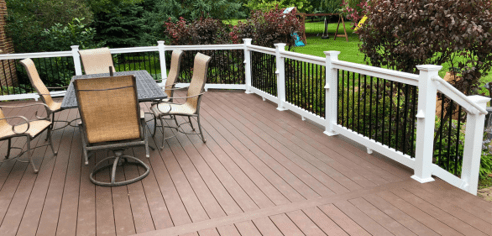Heating oil suppliers shropshire are a reliable and efficient fuel service and the perfect source for home heating, but managing it responsibly is crucial to avoid leaks and spills. Not only can these incidents damage your property, but they can also pose environmental risks and lead to costly cleanup processes. Preventing heating oil leaks and spills begins with proper care, maintenance, and awareness. Here’s a guide to help you safeguard your home and the environment.
Regularly Inspect Your Tank and System
Regular heating oil tank inspections are the first line of defense against heating oil leaks. Over time, tanks, pipes, and fittings can wear out, increasing the risk of leaks.
What to Check:
- Tank Condition: Look for rust, dents, or corrosion, especially on steel tanks.
- Pipes and Hoses: Ensure there are no cracks, splits, or visible wear.
- Tank Base: Check the foundation for cracks or instability that could stress the tank.
Professional Inspections:
Schedule an annual inspection with a certified technician who can identify and address potential issues before they become problems.
Install a Bunded Tank
Bunded tanks are double-walled or have a secondary containment system designed to hold oil in case the primary tank fails.
Benefits of a Bunded Tank:
- Contains spills, preventing them from spreading.
- Meets regulatory requirements in many areas.
- Provides an added layer of security, especially for outdoor installations.
Protect Your Tank From Weather
Extreme weather conditions can weaken or damage your heating oil tank.
How to Weatherproof Your Tank:
- Shield From Sunlight: UV rays can degrade plastic tanks over time. Install a cover or position the tank in a shaded area.
- Guard Against Freezing: Insulate pipes and fittings to prevent freezing and cracking during cold weather.
- Secure Against Storms: Anchor your tank properly if it’s located in a flood-prone or windy area.
Use a Spill Alarm
Spill alarms are devices that alert you to leaks or overfilling.
Types of Spill Alarms:
- Tank Alarms: Installed inside the tank to detect overflow.
- Leak Sensors: Placed near the base of the tank to detect leaks early.
These devices provide peace of mind and allow for quick action in the event of a problem.
Practice Safe Refueling
Spills often occur during the refueling process.
Steps for Safe Refueling:
- Check the Tank Before Delivery: Ensure there’s enough space to accommodate the delivery.
- Be Present: Supervise the refueling process if possible.
- Use Trained Professionals: Always rely on licensed heating oil suppliers to deliver fuel.
Avoid Overfilling
Overfilled tanks are a common cause of spills. Use your tank’s gauge to monitor levels and avoid filling it to the very top.
How to Prevent Overfilling:
- Install an automatic shut-off device.
- Communicate with your supplier about your tank’s capacity before delivery.
Secure Your Tank Against Tampering
Heating oil theft can sometimes lead to leaks if thieves damage your tank or fittings.
How to Protect Your Tank:
- Install Locks: Secure the fill point with a lockable cap.
- Add Security Lighting: Illuminate the area to deter unauthorized access.
- Position Strategically: Place the tank in a location that’s not visible from the street.
Monitor for Early Warning Signs
Early detection is key to preventing a minor issue from becoming a major spill.
Signs to Watch For:
- Unusual odors near the tank.
- Puddles of oil around the base.
- Sudden drops in oil levels without corresponding use.
- If you notice any of these signs, contact a professional immediately.
Follow Proper Decommissioning Practices
If you’re replacing an old tank or switching to a different heating system, ensure the old tank is decommissioned properly.
Steps for Safe Decommissioning:
- Empty the tank completely.
- Remove it according to local regulations.
- Hire certified professionals to handle the process safely.
Understand Local Regulations
In many areas, there are legal requirements for heating oil tank installation, maintenance, and spill response.
Why Compliance Matters:
- Protects you from fines and legal action.
- Ensures the safety of your property and the environment.
- Provides guidelines for proper tank management.
- Check with your local authority or heating oil supplier for specific regulations in your area.
Be Prepared for Emergencies
Despite your best efforts, accidents can happen. Having a plan in place can minimize damage and ensure a swift response.
Emergency Preparedness Tips:
- Spill Kit: Keep absorbent materials, gloves, and a container for disposing of spilled oil.
- Contact Information: Have your heating oil supplier and local environmental agency’s numbers on hand.
- Quick Action: If a leak occurs, stop the flow of oil, contain the spill, and notify the appropriate authorities immediately.
Conclusion
Preventing heating oil leaks and spills requires proactive maintenance, careful refueling practices, and adherence to safety guidelines. By taking these steps, you can protect your home, save money, and minimize your impact on the environment.
Regular inspections, proper equipment, and a commitment to safety are your best allies in keeping your heating oil system running smoothly and responsibly.














